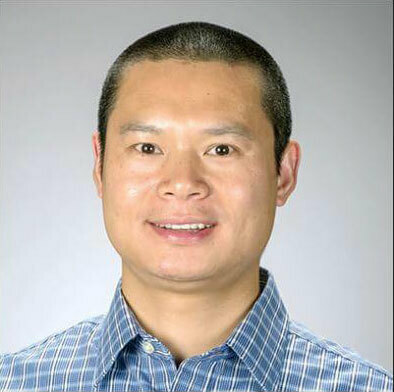Yong Cheng

Research Assistant Professor
Host-pathogen Interactions in Mycobacterium tuberculosis Infection
Research Interests
Approximately one third of world's population is infected with Mycobacterium tuberculosis, the causative agent of tuberculosis (TB) and although only 5 to 10% of infected individuals develop active disease this nevertheless results 9 million new TB cases and 1.4 million deaths annually. While the development of novel technologies such as diagnostic platforms have advanced the global control of TB it still remains the leading cause of death by a single infectious organism.
My research interest is focused on understanding the molecular and cellular mechanisms of the host-pathogen interactions during an M. tuberculosis infection. M. tuberculosis is an intracellular bacterial pathogen, and primarily resides and replicates within alveolar macrophages in the lung. It has evolved multiple capacities to evade macrophage defense mechanisms such as inhibiting phagosome maturation and INFy-mediated macrophage activation. The interplay between M. tuberculosis and host cells can result in three conditions: 1) elimination of infection, 2) latent TB infection (LTBI) and 3) active TB disease. The precise determinants to define which of these outcome occurs within an infected individual remains to be elucidated.
Nucleated cells including M. tuberculosis-infected macrophages release nano-scale membrane vesicles called exosomes, which upon release gain access to all body fluids including blood, urine, breast milk and saliva. Interestingly, exosomes released from M. tuberculosis-infected macrophages contain mycobacterial components including lipids, proteins and RNAs. While the precisely physiological function of these exosomes during an M. tuberculosis infection remains to be defined, these vesicles provide a novel source for innovative TB vaccines and diagnostic platforms. One main area of my research has focused on deciphering the role of exosomes in M. tuberculosis pathogenesis, and the development of exosome-based TB vaccines and diagnostic techniques using cutting-edge technologies.
Another area of study involves the development of antimicrobials against M. tuberculosis and M. avium complex (MAC) in collaboration with Dr. Marvin J. Miller in the Department of Chemistry and Biochemistry. University of Notre Dame. The overall goal of the study is to develop novel, active and cost-effective anti-mycobacterial drugs for both drug-sensitive and drug-resistant strains of M. tuberculosis and MAC.
Contact Information
131 Galvin Life Science Center
University of Notre Dame Notre Dame, IN 46556
574-631-9697 office
ycheng5@nd.edu
Primary Research Areas
- Cellular & Molecular Biology
- Infectious & Vector-Borne Diseases
- Microbiology & Immunology